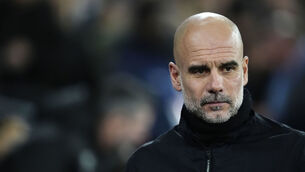Injury-time policy just doesn’t add up
The two best teams in the country, the perfect setting, the perfect conditions; just as there was no better place to be alive than in Killarney this past weekend, there should have been nowhere for better sport either.
Instead we came out of Fitzgerald Stadium with a wild sense of frustration.











